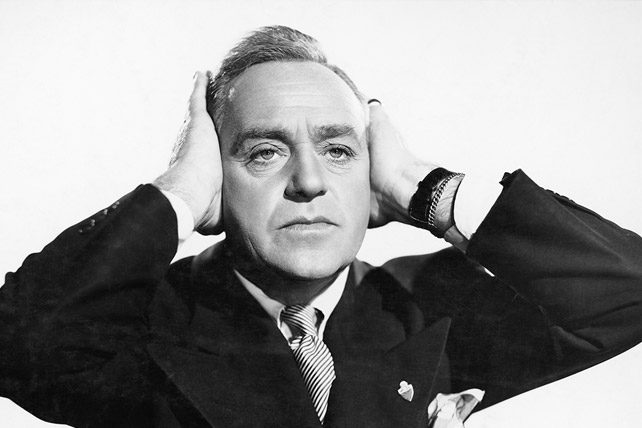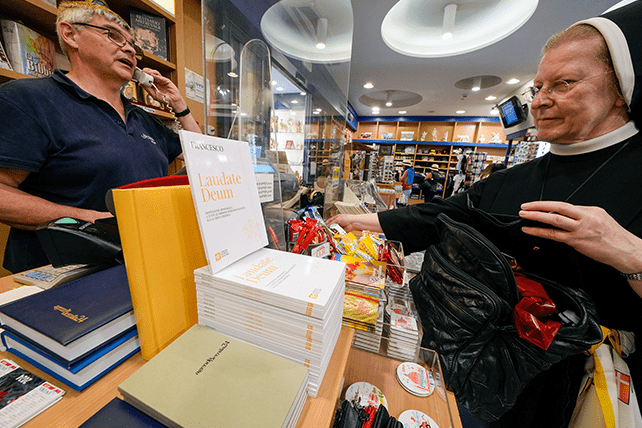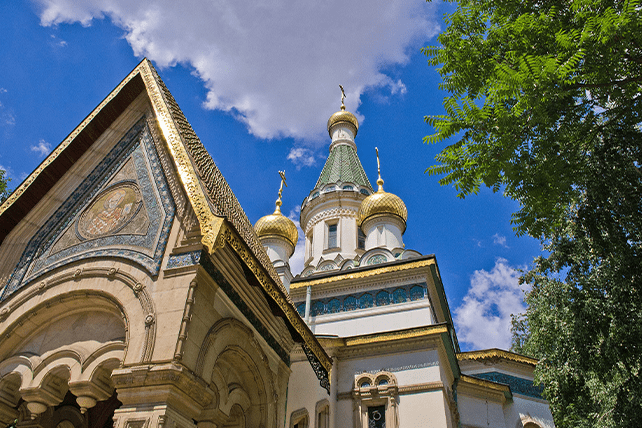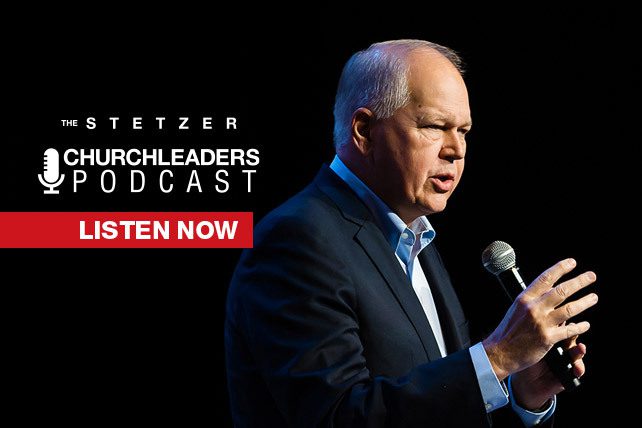You’ve seen them…QR codes are squares full of tiny black and white boxes. Think of it like a bridge between the physical and digital worlds. A code lives inside those tiny boxes. A smartphone can use that code to supply a website link, message, or even a game. Instead of having to type a website address to learn more about a product or service, people can simply aim their camera. Poof! The next time you see a QR code, point the camera on your smartphone toward it. Then watch for a message or link to tap.
You can make your own custom QR codes for free (I’ll teach you step-by-step below). Once you see their potential, you’ll find many new ways to include them in your communications.
It’s important to use the tools of technology in your ministry because they are instant, contact-free, engaging, and efficient multimedia. It shows your willingness to embrace technological advancements, an important part of your forward-thinking communication to those who are concerned about the Church being stuck in the past.
An Example
 This example will work best when you’re looking at it on any device other than your smartphone (explanation below).
This example will work best when you’re looking at it on any device other than your smartphone (explanation below).
How You Can Make a Custom QR Code
I find that it’s easier to do this from my computer rather than my phone or tablet. You’ll need to start with a website that generates the QR code. I like using goqr.me because it’s simple and free. Most often, I use it to create a QR code that points to a web address (but it can also be used to send a message, share contact info, send an SMS text, make a call, pinpoint a map location, send an email, or connect to wifi). At the goqr.me website, select the type (web address URL, text, etc.) in the top left. Then type the content, such as the web address or message you want to include in the QR code. Let’s say you want the code to point to yourchurchwebsite.com. As soon as you type, the QR code is already generated on the top right.
Your next step is to test it. Point your smartphone camera at your newly created QR code. So long as it functions the way you hoped, you’re good to go.
Next you need to get a copy of it from the website to your document. Right-click it to copy or save the QR code. Then paste or insert it into your poster, handout, brochure, or bulletin. There are some places you do not want to use QR codes (listed below).
One last step: If your QR code points to a website, you’ll want to include a web address for those who don’t have (or like to use) smartphones (see number 5 below). Head on over to tinyurl.com and type or paste your super long website address. One click later on the Shorten URL button and you have an aptly named tiny URL. Take the guess work out of the QR code by including a phrase like “Scan this code to [insert goal here: learn more, etc.] or go to www.yourawardwinningwebsite.com.” (I don’t prefer Google’s web address shortener goo.by because it requires you to have an account. In case you’re wondering, yes, I do see that QR button on the tinyurl website; but it only makes QR codes for websites, not for the bazillion other things QR codes can do.)
If you followed along, you just made a QR code, maybe your first ever! Way to go, you tech genius! Now that we’ve covered how to create your own custom QR codes, let’s talk about the good, bad, and ugly ways that people use them in ministry. Before we go QR crazy, we should address best practices (or in this case, the worst).
There’s a problem with QR codes: some churches are using them all wrong. You’re smarter than those people though, right? Here’s a list of wrong ways to use QR codes so you know what to avoid.
1. QR on Your Website or Social Media
You may be thinking to yourself, “But I thought these things were digital. Aren’t websites and social media digital too?” They are. But this isn’t how QR codes work. People need several things in order for a QR code to work: the code and a smart device (like a phone, etc.) with a camera that can see the code. That part is key. Because your smartphone camera can’t see your smartphone screen, you can’t point the camera at a QR code on its own screen. Your eyes can see it. But your smartphone can’t. See the problem? The code has to located somewhere else, not on the social media post you just made. If you’re putting QR codes on your social media, you’re doing it wrong.
2. QR in Your Video Projection
This one might earn me some pushback because it’s more of an opinion than an absolute dumpster fire. Picture it with me. You’re preaching. People are listening to you deliver the Word of God. Just as minds are stirred and hearts are convicted, a number of people in the room lift of their phone and aim the camera at the video projection screen because you put a QR code in your sermon slides. You could put one there. It would function. But I think it would ruin the moment. Don’t do it.






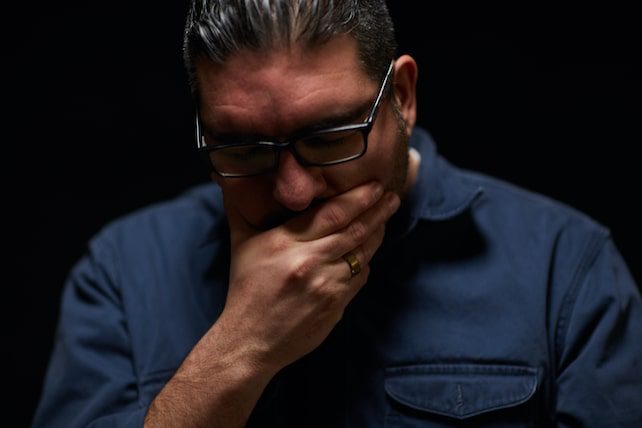
 My name is David. And I’m a
My name is David. And I’m a 

 This example will work best when you’re looking at it on any device
This example will work best when you’re looking at it on any device 